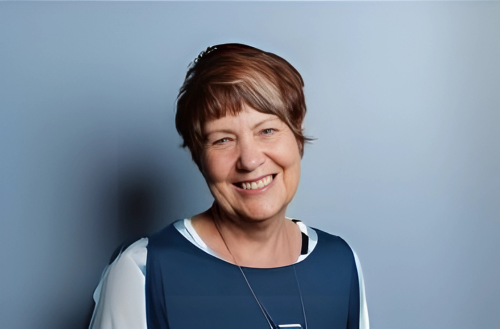Mentoring Advice from Leonie Morgan AM FAICD

Governance expert Leonie Morgan AM FAICD recently spoke to our alumni about the power of mentoring and how it can transform your board journey. Mentoring helps you reflect on your experience, holding up a mirror to understand where you’ve been and chart where you want to go.
Taking the first step
Don’t wait for someone to approach you about mentoring – take the initiative. The path to board roles requires proactive relationship building and strategic connections. Start by reflecting on what you want to achieve through mentoring and who might help you get there. Remember, getting your first board position takes time.
Why mentoring matters
A mentor can be instrumental in navigating your journey to the boardroom. They can help you identify which sectors and boards align with your skills and aspirations, provide guidance on what you need to do to secure board positions, and introduce you to key people in their network. Beyond practical advice, mentors offer valuable support when you’re feeling discouraged and can boost your confidence throughout the process.
Finding your mentor
The best mentor is generous with their time and interested in helping someone who is less experienced. Start by identifying potential mentors – people you already know, those you’ve heard about, or individuals others recommend. Create a prioritised list and begin with your top choice. When making initial contact, keep it simple. Rather than immediately asking someone to be your mentor, request a coffee meeting to seek their advice about boards and governance. Bring specific questions to this first meeting and see how the conversation develops.
What to consider before your first meeting
Think about:
• How often you’d like to meet (typically monthly or fortnightly)
• What specific areas you want guidance on
• Where and how you prefer to meet (in person, via Zoom, or a mix)
• What you want to achieve through the relationship
Making it work
A successful mentoring relationship requires commitment from both parties. Come prepared to each meeting with specific topics to discuss or questions to ask. Be enthusiastic and willing to listen, learn, and try new approaches. View constructive feedback as a gift – it’s an opportunity to grow and develop your skills.
Building trust
Remember that the mentoring relationship is built on trust and confidentiality. Take time to develop the relationship through regular, meaningful contact. Both you and your mentor bring valuable perspectives to the table – successful mentoring is a two-way partnership where both parties can learn and grow.
If things don’t work out
If your first choice of mentor isn’t available, remember this is often simply about timing and availability rather than any reflection on you. Many potential mentors have significant commitments that may prevent them from taking on a mentoring relationship, regardless of their interest in supporting emerging directors. Stay positive and move on to the next person on your list of potential mentors – persistence and resilience are valuable traits in your board journey.
Remember to thank your mentor regularly – they are volunteering their time to support your development. Their guidance can be invaluable in helping you navigate your path to the boardroom.
Leonie Morgan AM FAICD is an accomplished board chair, non-executive director and mentoring expert who has dedicated more than 25 years to supporting women’s advancement in leadership roles. She has organised and led mentoring programs across Australia and throughout Asia and the Pacific, with particular focus on mentoring women into politics at local, state and federal levels, as well as supporting women in their board careers. Throughout her career, she has shaped the development of countless emerging and established directors, making a lasting contribution to excellence in Australian governance.
Connect with Leonie on LinkedIn
